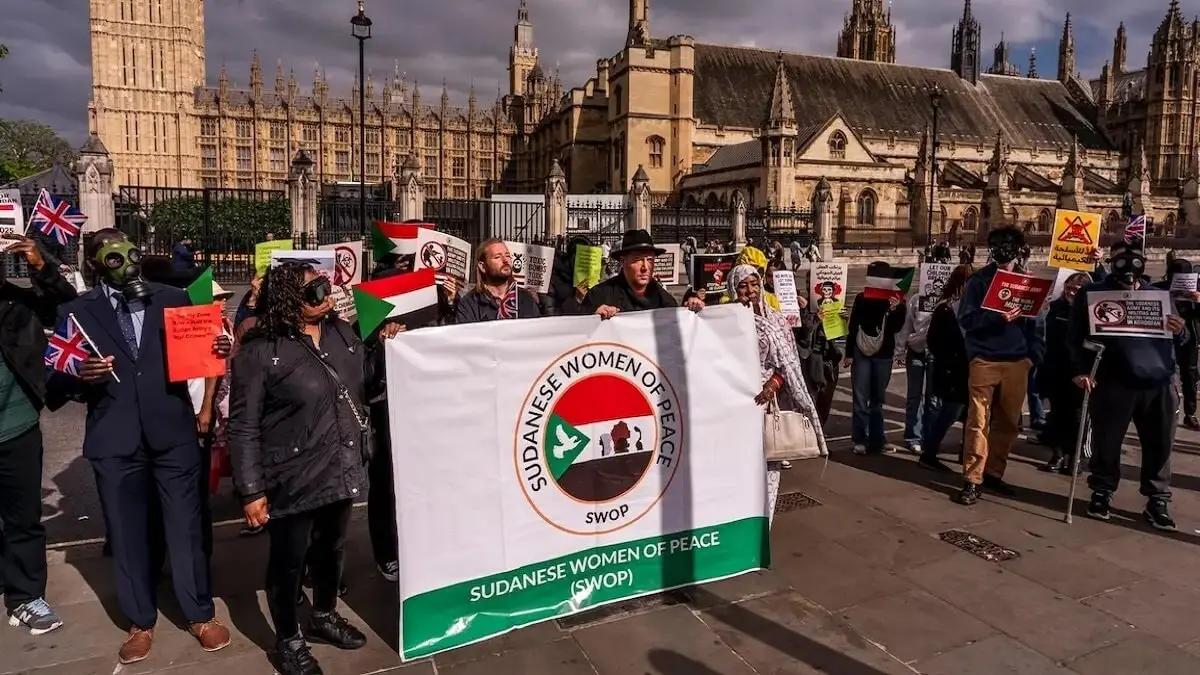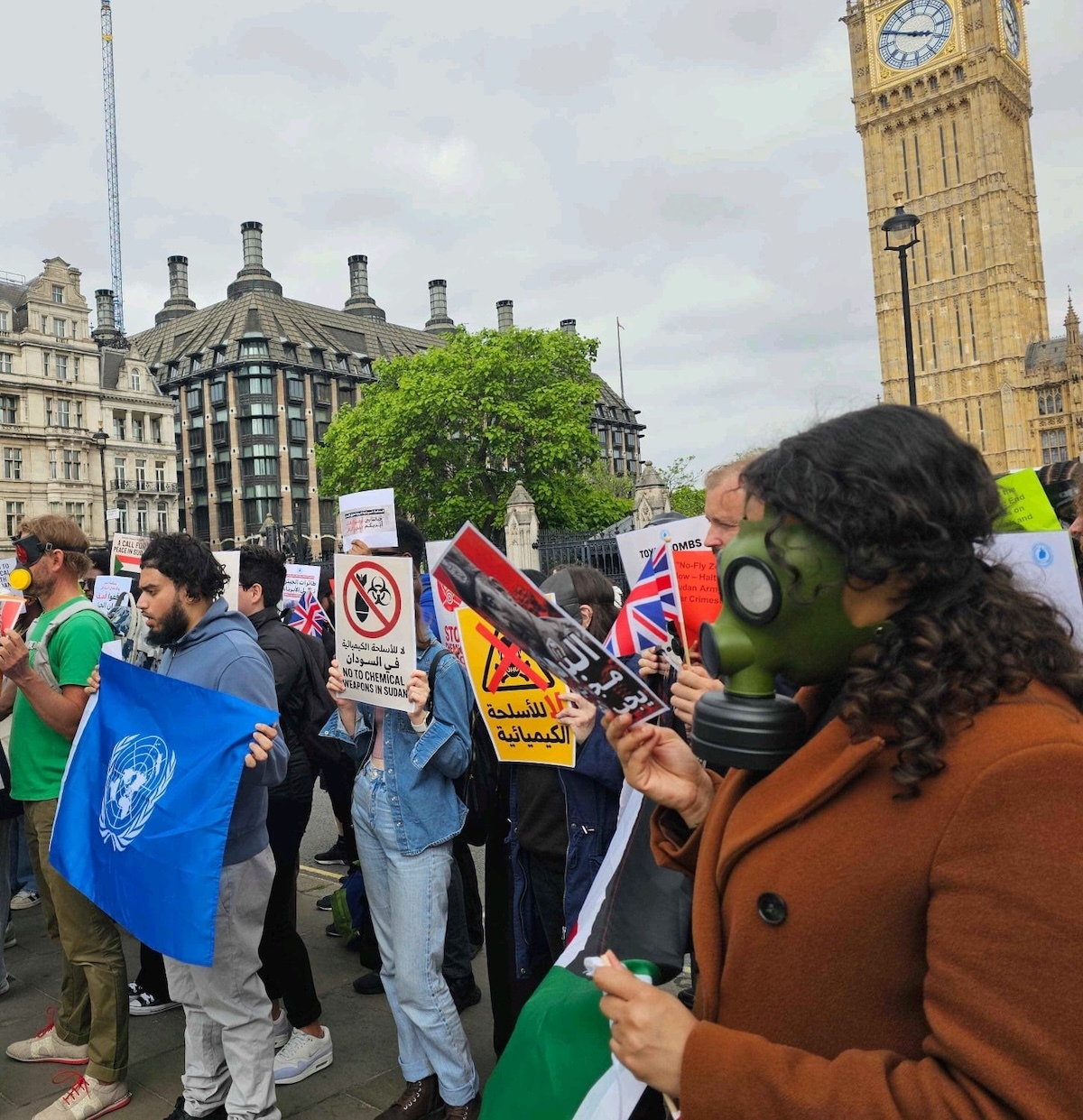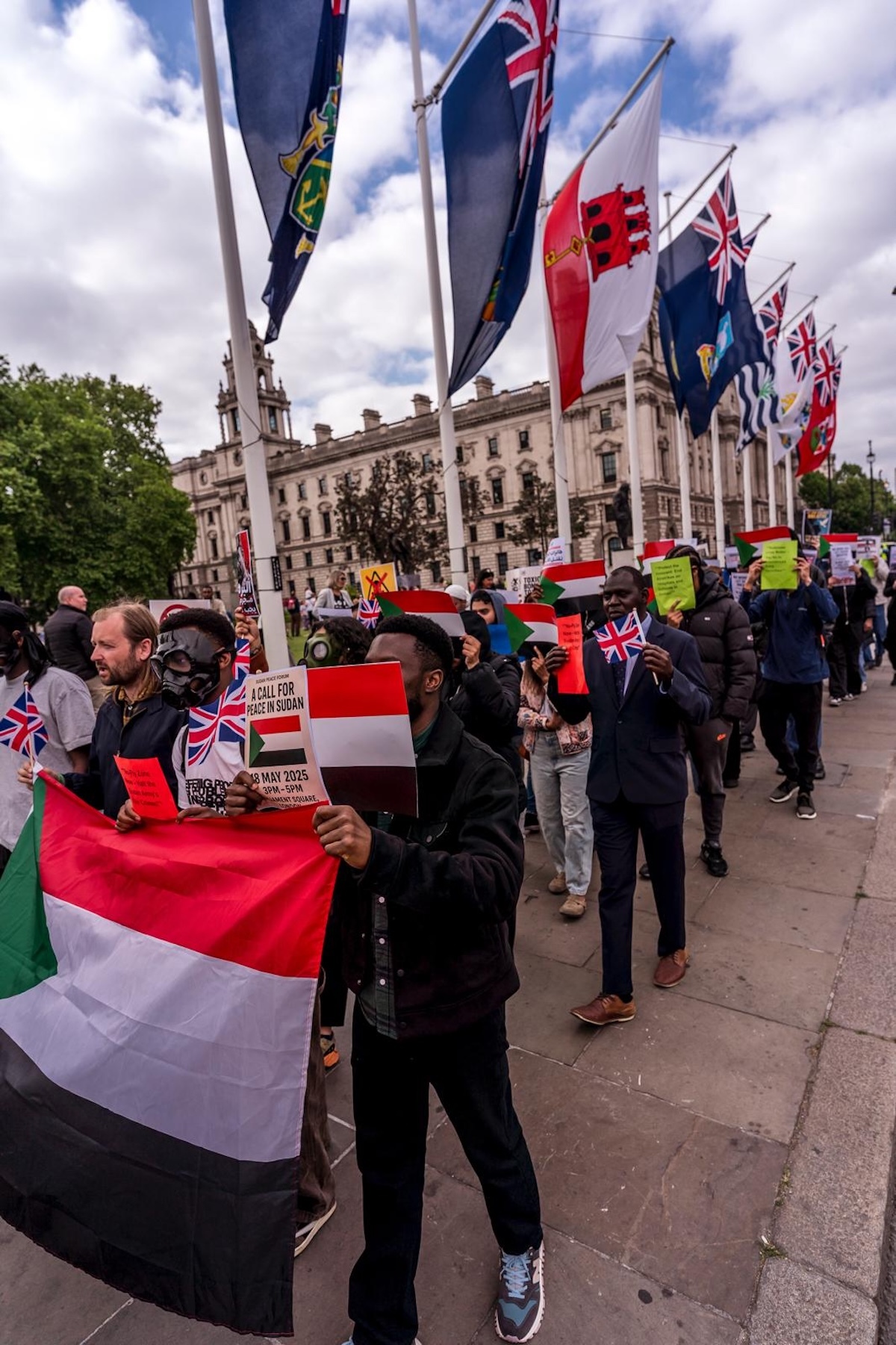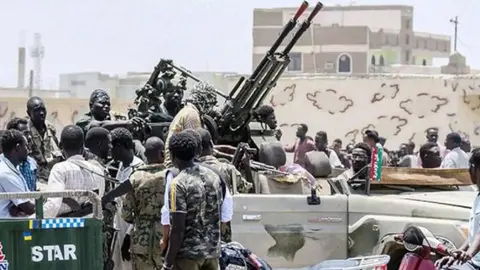Protests in London against the use of chemical weapons in Sudan

On Sunday, a large demonstration of Sudanese activists and citizens took place around the British Parliament in London. Some of them wore yellow vests similar to protective clothing against chemical weapons and protective masks, as a symbolic expression against the use of these internationally banned weapons in the war ravaging the country, especially in the states of the Darfur region and against civilians.
During the protest, banners written in Arabic and English were raised with a joint message addressed to the Arab and international communities, urging them to put pressure on the authorities in Port Sudan to participate in peace negotiations, as they are the party that has so far refused to do so, which means a continuation of the conflict.
Despite US reports that the Port Sudan authorities have used chemical weapons in bombings in areas of the Darfur states, access to protective equipment against chemical weapons, such as suits or masks, is unattainable for a population suffering from devastating famine.

The global market value of protective clothing was estimated at US$11.3 billion in 2023 and is expected to reach US$18.6 billion by 2029, with a compound annual growth rate of 8.72%. These figures far exceed the capabilities of the Sudanese people.
Protective clothing is designed to protect people from potential hazards, including chemicals, fires, biological agents, and others. This market encompasses a wide range of products, such as fire-resistant clothing and chemical suits.
This protest took place more than a month after an international conference on Sudan was held in London, calling for an immediate and lasting ceasefire and an end to the conflict. The conference was organized by the United Kingdom, France, Germany, the African Union, and the European Union, with the participation of ministers from 14 countries and representatives of international and UN agencies.

At the time, participants called for support for a transition to a civilian government elected by the Sudanese people and an end to any foreign intervention that increases tensions or prolongs the war. The United Kingdom and the European Union pledged hundreds of millions of dollars during the conference to alleviate suffering in Sudan.
The conference coincided with the second anniversary of the conflict in Sudan, which has claimed the lives of tens of thousands of people, displaced 14 million and pushed large areas of the country towards famine. There were also calls for rapid, safe, and unhindered humanitarian access to all areas in need, by all necessary means, in accordance with the commitments made in the Jeddah Declaration and in accordance with international humanitarian law.
The US newspaper The New York Times reported last January that the United States imposed sanctions on Abdel Fattah al-Burhan, citing strong evidence of atrocities committed in the country. Citing four senior US officials, the newspaper said that al-Burhan's forces used chemical weapons on at least two occasions against the Rapid Support Forces.

According to the newspaper, these chemical weapons were recently deployed in remote areas of Sudan and have already been used, but US officials fear they could soon be used in densely populated areas of the capital, Khartoum.
The announcement of the chemical weapons reports coincided with the imposition of sanctions by the United States on al-Burhan for documented atrocities committed by his militias, including the indiscriminate bombing of civilians and the use of starvation as a weapon of war.
The use of chemical weapons marks a new threshold in the Islamist war in Sudan. The conflict has caused the world's worst humanitarian crisis, with up to 150,000 dead, more than 11 million displaced, and now the worst famine seen in decades.
At the time, the US Treasury Department stated: “Under al-Burhan's leadership, the tactics of war employed by his forces included indiscriminate bombing of civilian infrastructure, attacks on schools, markets, and hospitals, and executions.”









